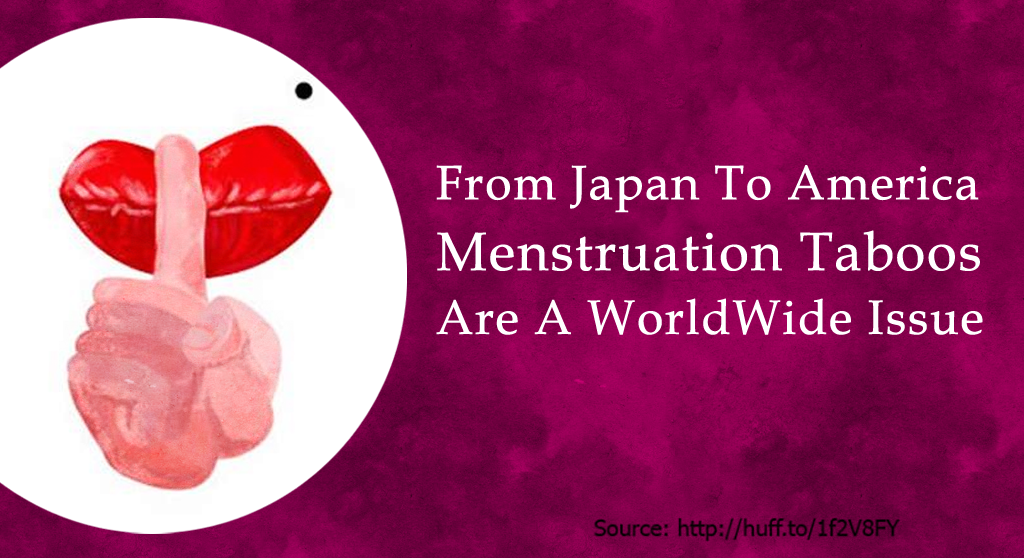The Oxford dictionary defines a “Shackle” as a pair of fetters connected together by a chain, used to fasten a prisoner’s wrists or ankles together or even as a situation or factor that restrains or restricts someone or something. This editorial is not just to emphasize a subject that has at last been brought to open dialogue but is rather to question ourselves for the delay in engaging with the subject.
Taboos surrounding mensuration and the problem of Female genital mutilation are real shackles for women even today when women empowerment is apparently, being given a top priority.
As a writer, I ask all my readers to contemplate why even in 2018 there is a need to stress the dimensions and scale of mensuration taboos and female genital mutilation (FGM).
What took us so long? Why did we silently allow sanitary pads and tampon advertisements to desensitize us by showing that women bleed “Blue”? Did our education system not instill in us that menstruation is a natural process? How could we allow ourselves to believe that female sexuality is not natural? How could we forget that women, humans, bleed “Red”? In contemporary times, a lot has been written and spoken about the issues surrounding these two topics but the real question is what are we truly doing about them? Taboos surrounding mensuration and the problem of Female genital mutilation are real shackles for women even today when women empowerment is apparently, being given a top priority.
Mensuration taboos have often led women to be considered “dirty”, “impure” and even “unclean” during their mensuration cycles.
Mensuration taboos are not a problem of one city, state or a country but are in fact an international problem where women face obstacles due to these taboos in their daily lives. Female genital mutilation, a tangible manifestation of these taboos, is the partial or total removal of the external female genitalia for non-medical reasons widely practiced in Asia, Middle-East, and Africa. Such dreadful acts are carried out for a range ghastly reasons, usually centered around control over female sexuality and find their basis in religious or aesthetic justifications.
It is ironic to live in a world where women are often worshiped and then at the same time face such atrocious problems. The real question to raise here is not just how bad the situation is but what are we actually doing about it. Having mere discussions is not enough but what we now need is to bring words to action. As a part of the society, it is our responsibility to break these chains through education where educational institutes can play a massive role in not only breaking these taboos but also empowering women to be confident about their body.
The entire exercise from purchasing a pack to using it is cloaked with secrecy. Girls in schools being forced to stuff them in their pockets. These are not trivial issues, they act as a drag on women’s self-confidence by making them self-conscious needlessly.
Women are often questioned and looked down upon with shame for a natural bodily function which is experienced by half of the population of the world. Due to these reasons, they are forced hide their tampons, pads etc. given how entrenched the associated embarrassment is in our culture. The entire exercise of purchasing a pack to using it is cloaked with secrecy. Girls in schools being forced to stuff them in their pockets. These are not trivial issues, they act as a drag on women’s self-confidence by making them self-conscious needlessly.
They are also put under the knife (FGM) in the name of religion etc. giving them no say over their very own body. There is a lack of freedom to discuss, question and explore alternative views within practicing communities. Both these problems are deep-rooted in gender inequality further creating deeper problems in the society.
Education plays a huge role in confronting the shackles that women face in today’s world. The younger generation spends most of their time in educational institutes including most of their crucial years are spent in gaining knowledge. Thus it becomes important for educational institutes to help break these shackles and educate the society about these problems. The fact that we are still facing problems shows that something is really wrong with our education system that has failed miserably to teach such basics to our society.
The Way Ahead…
Period poverty is not just a problem being faced in India but all across the globe and even in developed countries such that of United Kingdom. It wouldn’t be wrong to say that Period Poverty is a byproduct of the taboos that have surrounded mensuration for years. Many women are forced to use unhygienic ways during their mensuration cycle and many girls are forced to skip school due to these taboos across the globe.

We are living in times where the government taxes are being imposed on sanitary pads considering them to be kept under the category of “luxurious activities”. Didn’t something seriously go wrong with our education system that we need to wait for a Bollywood movie to bring this topic out for discussion? Or if not that but for a man to struggle for years to bring this problem into to notice of many. Our society needs many more people like that of Arunachalam Muruganantham who would take matters into hands do something about it.
The University of Westminster started a campaign called #WEBLEED.PERIOD as a part of their effort to overcome such taboos. They hosted a pop-up art exhibition called “Silent Oppressions” highlighting the gravity of the problem and working with the Students Union to start providing free sanitary pads in the university. Such measures need to be taken by Indian educational institutes as well as only then we can hope for a taboo-free society for women
I BLEED. PERIOD!
Palakh Dutta
